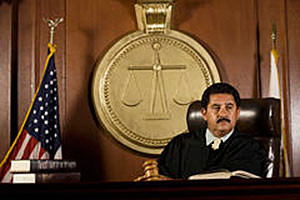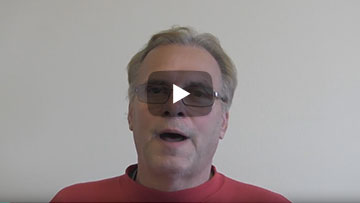After your truck accident lawsuit has been filed, there may be a period of months or, in some cases years before the trial date. Your Kansas City truck accident attorney should use this time to get information about the other driver’s defenses, get evidence, more clearly focus the issues in your case, in some cases mediate or try to settle the case, to get your case ready for trial and for other purposes. Conferences with the court, filing and deciding of motions, disclosures and discovery are some of the steps which can happen during this part of your case. Some of the court conferences which may occur in your case are:
1. Scheduling Conference.
The scheduling conference is usually the first significant opportunity for us to familiarize the judge with your case. Scheduling conferences are usually set early in the case, typically at some time after the trucking company and its driver have received your lawsuit and filed what lawyers often call an “answer”. This is a written response to the claims made in your truck accident lawsuit. Judges have a lot of control over how cases in their court are handled so the timing and conduct of scheduling conferences can vary significantly from court to court. Even different judges in the same courthouse may have different ways of handling these conferences.
The scheduling conference is about setting a timeline for your case, dates and deadlines. While procedures vary from court to court, there is often a fairly predictable set of issues that an experienced truck accident attorney can expect that the judge will want to discuss. The judge usually will ask the lawyers to provide basic information about the case and probably ask for recommendations concerning appropriate deadlines for various steps in the litigation process. Some examples of deadlines often set at scheduling conferences are deadlines for disclosing information about expert witnesses, completing discovery and conducting mediation. A date for the pretrial conference and trial date may also be set.
One of the lawyers may be ordered to prepare a court order called a “scheduling order” setting out in writing all the dates which have been set.
2. Discovery Conference.
 When your lawsuit has been filed court rules typically provide tools to request, and in some cases force the other side to provide information, documents and other things which can lead to evidence that can be used at the trial of your case. This process is called discovery In discovery we can ask the trucking company and its driver to provide information which helps prove your case. Obviously, because providing this information can go against their own best interests, they may try to avoid providing this kind of information. Attempts to avoid providing information can create problems which lawyers and judges often call “discovery disputes”.
When your lawsuit has been filed court rules typically provide tools to request, and in some cases force the other side to provide information, documents and other things which can lead to evidence that can be used at the trial of your case. This process is called discovery In discovery we can ask the trucking company and its driver to provide information which helps prove your case. Obviously, because providing this information can go against their own best interests, they may try to avoid providing this kind of information. Attempts to avoid providing information can create problems which lawyers and judges often call “discovery disputes”.
Discovery is a recurring source of problems and delay in litigation. To try to reduce these problems, your judge may schedule a discovery conference to monitor progress of discovery, resolve any discovery disputes and other discovery issues which may have come up.
3. Pretrial Conference.
The pretrial conference is usually held after the scheduling conference and any discovery conferences. Timing of your pretrial conference varies from court to court, and it may be held a number of months before your trial or much closer.
One of the purposes of the pretrial conference is to focus and define the issues at the trial. Despite having investigated the case before filing a lawsuit, when the suit was initially filed, each side may not have had all the information about your truck crash, why it happened, the damages you sustained because of it and other things.
Part of the purpose of discovery is to provide both us and the defense lawyers a way to obtain information so we can fill in the blanks and have a more complete picture of the case. In discovery lots of information is often exchanged. By the time of the pretrial conference it is expected that the lawyers will have had an opportunity to review the information obtained in discovery and have a more complete understanding of the facts of your case and the legal rules which apply.
The judge will probably also want to know each side’s version of the facts and law which apply in the case. This might generally include your version of how your wreck occurred, things the other driver did wrong, why the other driver is liable, among other things. The judge will probably want to know the driver’s defenses as well. The judge may also want detailed information about the damages you are claiming.
 One of the goals at the pretrial conference typically is to narrow and spell out the issues in the case so the trial can be most tightly focused on the issues that are actually disputed and need to be decided. If the parties can agree on certain issues, generally, evidence on them does not need to be submitted and the court and jury’s time does not need to be taken up with things that are not in dispute.
One of the goals at the pretrial conference typically is to narrow and spell out the issues in the case so the trial can be most tightly focused on the issues that are actually disputed and need to be decided. If the parties can agree on certain issues, generally, evidence on them does not need to be submitted and the court and jury’s time does not need to be taken up with things that are not in dispute.
As an example, take a case where you were rear-ended by an 18 wheeler. Through the course of discovery, the trucking company and driver’s lawyer may have concluded that they were was negligent and are not likely to succeed in convincing a jury that the truck driver should not be held liable. In that case, at the pretrial conference the defense attorney could indicate that they were admitting liability for the crash. The judge could find that liability was admitted and the trial would focus only on the issues which are disputed, like the amount of damages to be awarded.
Procedures vary among courts and even among individual judges in a particular court. So while this description of the procedures in a pretrial conference covers many typical things that judges often want to have addressed at a pre-trial conference, it is only an example. In your case your judge may or may not want to discuss these things and may want to address other items not listed here.
Once the pretrial conference is completed a pretrial order is usually prepared. It will typically include things addressed at the pretrial conference and narrow, define and limit the issues at the trial.




